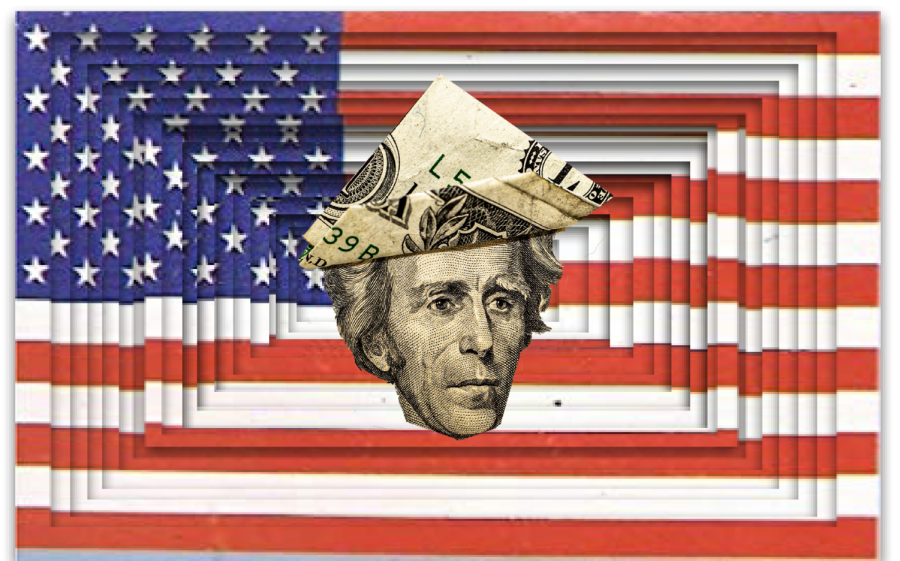Burton: It’s Time to Fix Our Campaign Finance System
October 28, 2020
The commercials being shown on TV for the past few weeks have been interesting, especially the campaign-related ads. Some of the most memorable include lurid music and imagery, musing on how Congressman Ben McAdams does not care for the Uyghurs in China. On the other side of the aisle, Burgess Owen’s financial woes and various bankruptcies are exposed as a scandal in a true-crime-esque attack ad against him. Highly dramatic and sometimes schmaltzy advertisements attacking candidates can have strong effects on viewers. Lyndon B. Johnson’s ad “Daisy” attacking Republican candidate Barry Goldwater is an infamous example of such. Political ads are just one of the many expenses successful campaigns face. It all has a price tag. Political funding is very expensive, meaning that those with the money have an inordinate amount of influence, and candidates with less funding can be damaged immensely.
American political campaigns are exercises in ineffective management and advertising. Campaign spending on TV ads alone has amounted to a billion dollars this cycle in just a handful of competitive states. This election cycle, nearly half of campaign expenditures have gone to media, with salaries, strategy and research, fundraising receiving smaller portions. Money has the power to make campaigns operate smoothly but also has some considerable caveats. Much of this financing comes from a wealthy minority and Political Action Committees (PACs). In this election alone, the top 100 donors made 944 million dollars in donations. This status quo creates a noticeable skew in whose voice is heard. Unfortunately, both parties receive plump benefits from wealthy benefactors making reform difficult.
Campaign finance reform has been on the lawmakers’ minds for a while. The Federal Election Campaign Act was passed in 1971, creating a new regulatory scheme of campaign finance laws and ever since, different reform ideas have been circulating and gaining traction. Public financing, using tax money to fund campaigns, has already been implemented in places like New York and Norway successfully for decades. One system matches every dollar given by a small donor with a dollar from the government — a 25 dollar donation becomes a 50 dollar donation. Seattle distributes “Democracy Vouchers” — a sort of coupon that a donor can use to donate to a certain candidate. It gives average citizens more financial sway in the campaign.
Expanding campaign disclosure is another solution currently gaining bipartisan momentum. A considerable portion of PAC and Super PAC donations do not have to be disclosed. To address this, Senator Sheldon Whitehouse has introduced his DISCLOSE Act every year since 2012, which requires disclosure of funding and statements in ads detailing which organizations (i.e. corporations, unions) funded it. Disclosure laws have also been implemented on the state level with decent success.
The FEC itself could also use some fixing as well. Former commissioner Ann Ravel commented that the organization is “worse than dysfunctional.” Since the commission is split evenly between parties, the decision is often gridlock. Reform for the FEC, unlike the DISCLOSE act, does have bipartisan support, such as laws restructuring the FEC by Congressmen Derek Kilmer and Jim Renacci. These bills would include reducing the number of FEC commissioners to 2 Democrats, 2 Republicans, and 1 independent, as well as a chairman with more investigative and administrative powers. Though solving the issue of chronically not having enough members for a quorum may go a long way.
Perhaps what is even more important than reducing the amount of money is reducing its influence. If we look abroad towards other countries, such as Australia or Germany — both highly acclaimed democracies — we find that they have no limits on spending and donations. Instead, they have other non-monetary requirements that blunt the rewards of high spending, such as a much-reduced window of time to campaign and TV ad constraints. With these constraints in place, it’s no surprise that these country’s elections seem less sensational compared to American campaigns’ competitive and deeply vitriolic tone.
It’s no secret that the modern American campaign is a bitter and contentious affair, with money at the very heart of it. Because of our campaign finance system’s structure, money has an inordinate amount of influence and spending in elections, favoring rich donors and poisoning the civility that should exist when we elect our officials. This year’s election has been nasty and brutish, only showing how badly we need campaign finance reform.








